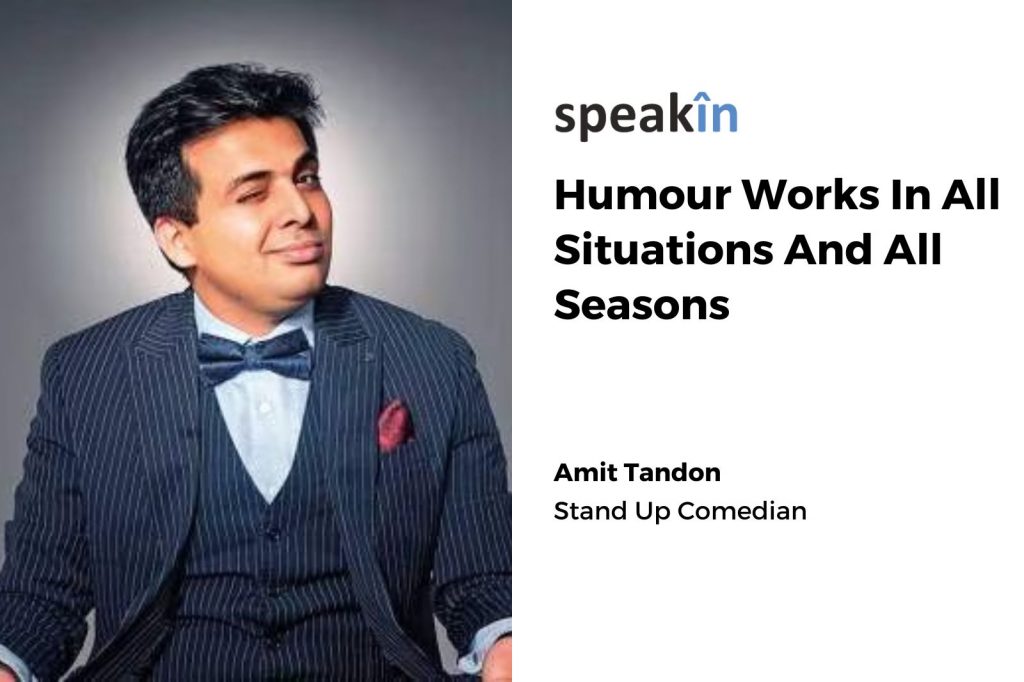Humour Works In All Situations And All Seasons

Humour works in all situations and almost all circumstances. Even in the corporate world, humour often comes in handy. Let me recall the story of Herb Kelleher.
He was the legendary CEO of Southwest Airlines. He is remembered for revolutionising low-cost, commercial aviation with a clear vision for a scrappy, offbeat airline. In 1992, his carrier came up with the tagline ‘Just Plane Smart’. They got a call soon from Stevens Aviation which said the line belonged to them, they had been using the slogan ‘Plane Smart’ much before Southwest. Kelleher, instead of spending thousands of dollars on legal fees and letting the courts decide the matter, came up with an idea that he would arm wrestle the CEO of Stevens. Whoever won would keep the slogan.
It was a huge stunt that garnered plenty of attention and both sides made a lot of money. And the dispute was settled.
Humour goes beyond jokes. When I used to run an HR consulting firm, we decided we could carry a joke in the footer of every email. This led to people looking out for the joke that went out every day on HR mails. They would wait for the mails. So, humour makes the office environment a little less serious.
Likewise, why not start your office presentation with a humorous take? Laugh at yourself. No one would mind. In fact, if you laugh at yourself then no one in the gathering would mind if later on you crack a joke at their expense.
The key is to keep what you are saying short. If you are the only one speaking, then after 10 minutes, you are also the only one listening. No matter how interesting a speaker you might be, you need to keep your audience engaged. And awake.
Keep the audience on their toes. Before you start your speech or presentation, ask some in the audience their names, and later on use those names while making your speech—it makes a connection with the people listening to you. Break the monotony. Walk around. Sit down. Ask questions. Don’t just speak endlessly in an even voice. Modulate your tone. You need an emotional connect with your audience.
Speaking to an audience, you need a hook. Say something in the first 30 seconds that makes people sit down and listen to you. It makes a big difference. It could be a statistic, a guarantee, an elevator pitch, or a joke.
In our HR firm, we created a guarantee statement promising the prospective client—if we do not close the position in seven resumés, we will do it for free. Nobody in the industry was doing that. It worked both ways. There was pressure on my team to send the best resumés and there was pressure on the client to give us feedback on each resumé.
Another way of getting attention is through storytelling. You are hooked not only for the humour but you also to know what happened next. Story based communication works well in almost all contexts.
Also, it is my belief that jokes constitute just two per cent of humour. The rest is observational humour. Even as you start to make an observation, the audience begins laughing because they can identify with the situation. For instance, a middle-class person goes into a luxury hotel. Now, he's under pressure to impress people around him. He does not want to appear to be a fish out of water. So, he is straining to do things designed to impress. In the process, he makes a fool of himself. The audience is familiar with that scenario.
Or, I talk to my audience about what happened when I visited my bank that morning. I went to deposit a cheque but the bank executive was trying to hard-sell some mutual fund plan. I talk about that. People are familiar with that and they laugh.
Effective communication is about knowing your audience. Always put yourself in the shoes of your audience—interns, clients, partners, seniors… Big companies do their dealer meets, for instance. So, you get dealers from towns like Jaipur, Indore, Nasik, Ludhiana, etc. who run shops. No point in the CEO or the marketing head of the FMCG company ascending the stage in making a long presentation or speech in English. The audience will lose interest quickly. English is not their first language.
If the senior official were to make an effort to speak with the audience in Hindi, it would create an immediate connect. It’s important to do that and for doing so you need to know who you are speaking to.
Regaling people with jokes is about practiced spontaneity. Practice your jokes. Maybe a hundred times. Don’t take comedy lightly. Humour emerges from the way you deliver your punch-line. Practice it till you perfect it.
About Amit Tandon
Amit is a standup comic, who has excelled in bringing comedy to the distinctly serious corporate world. He’s done over 1,200 comedy shows in India and in many parts of the world. He hosts a weekly show on Radio City 91.1. And he is often seen on television too. He has a new show, Good Night India, on Sony Liv.





